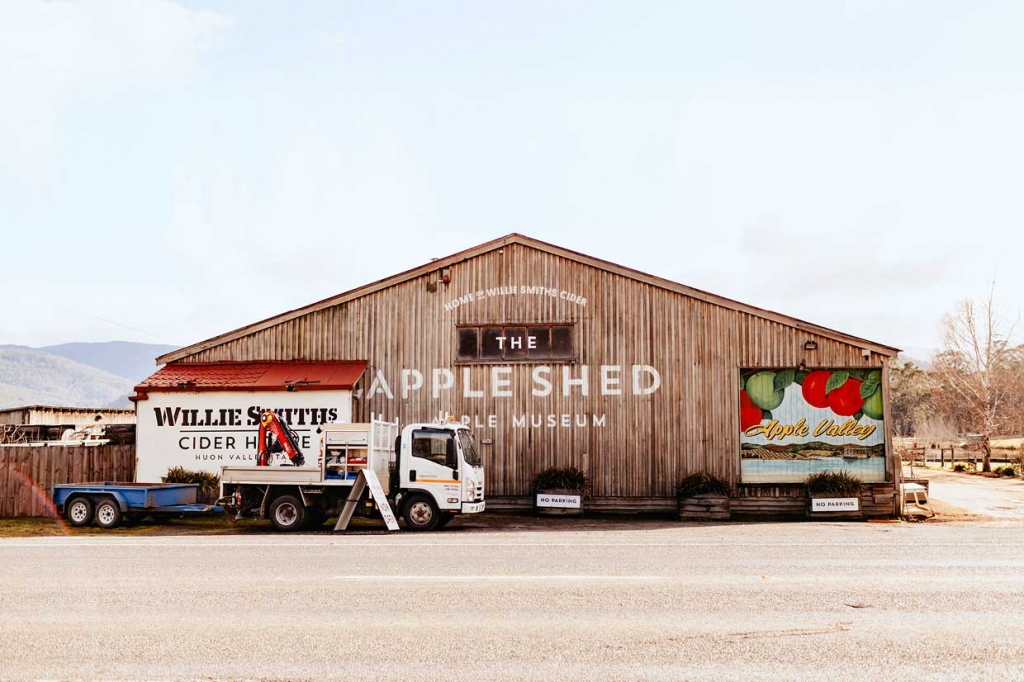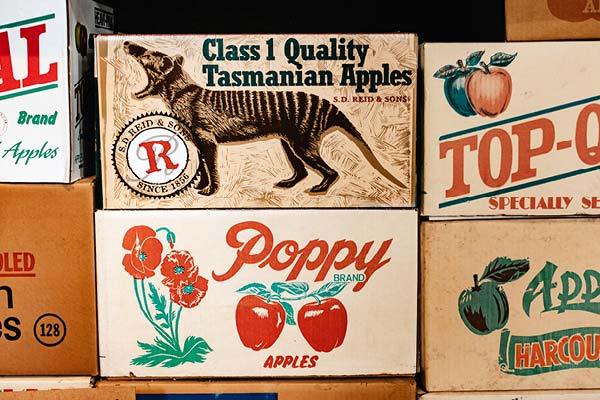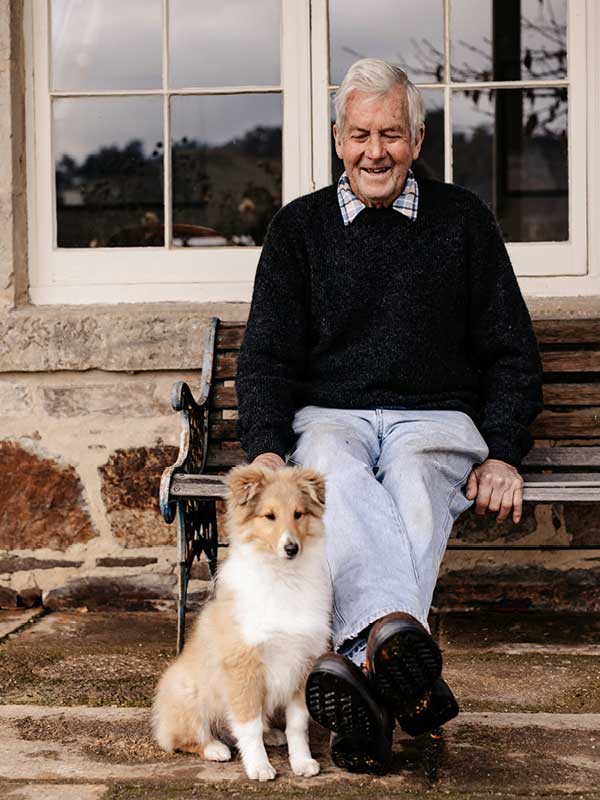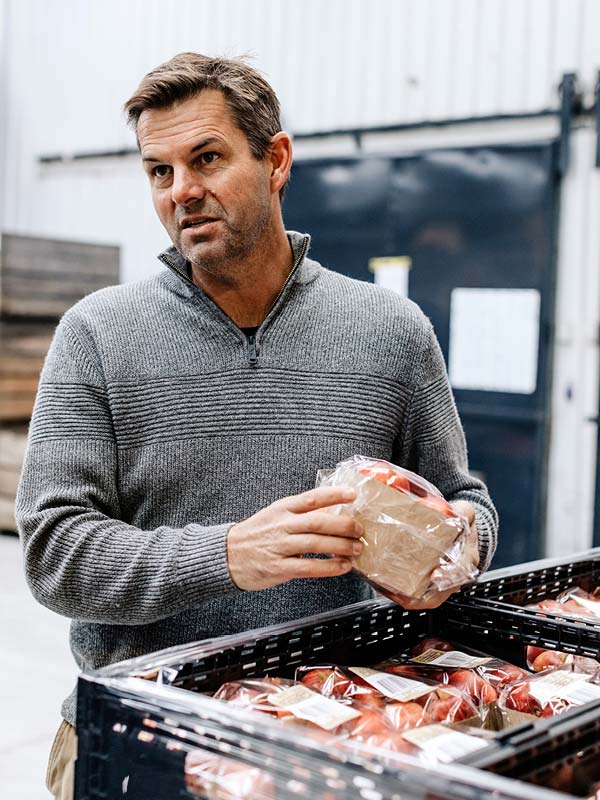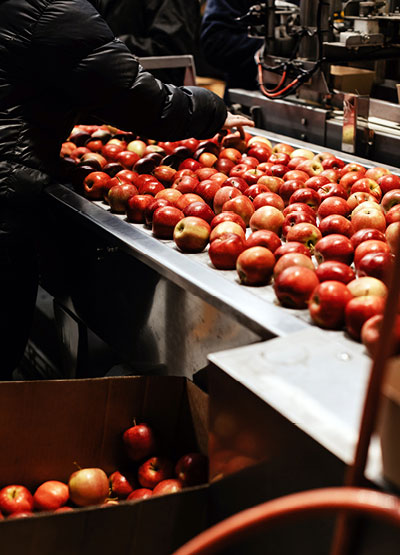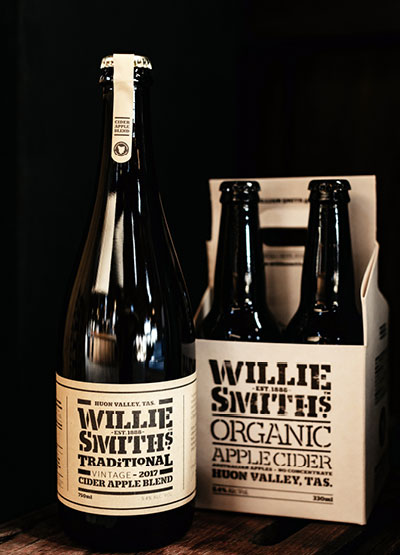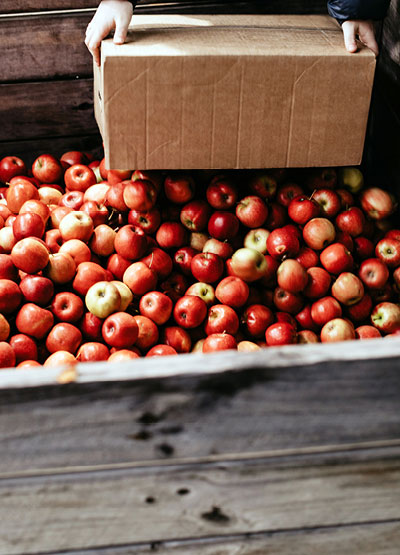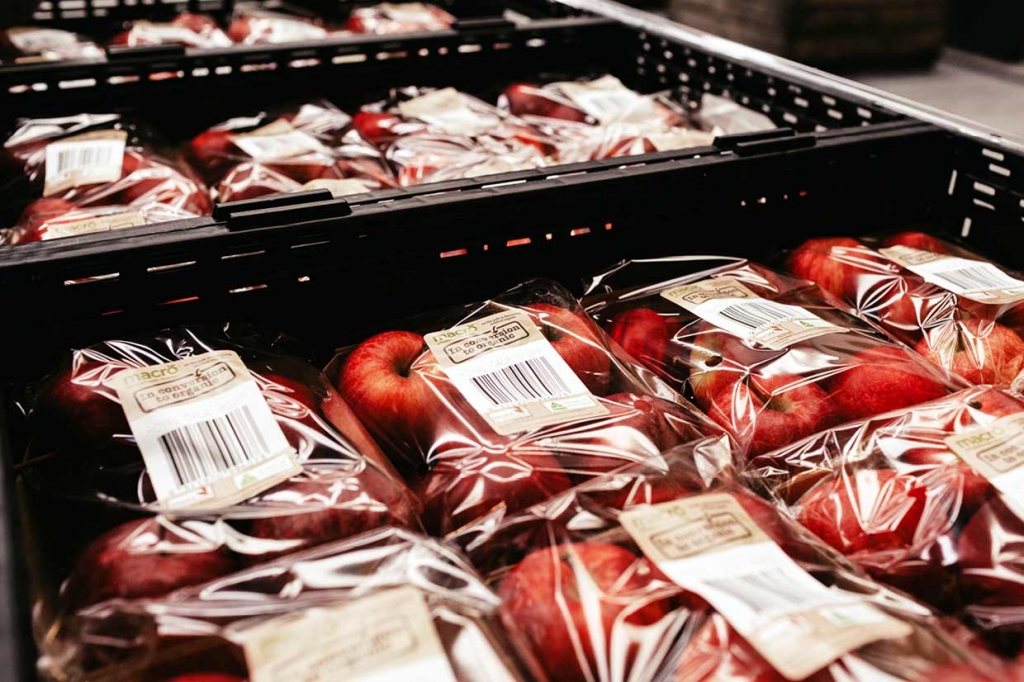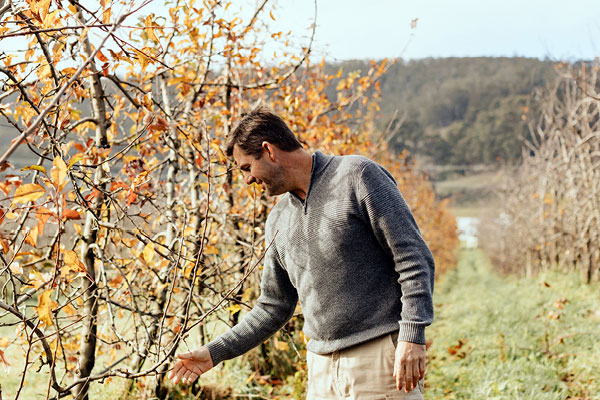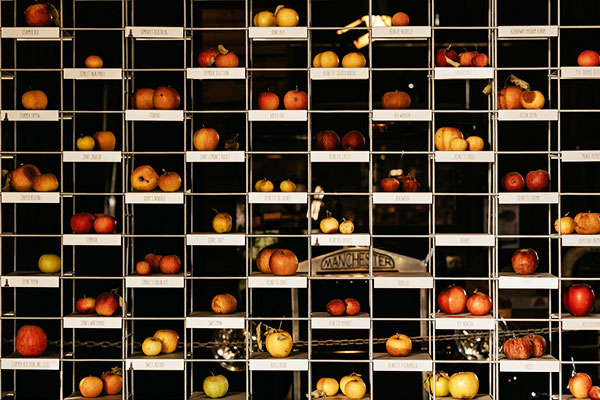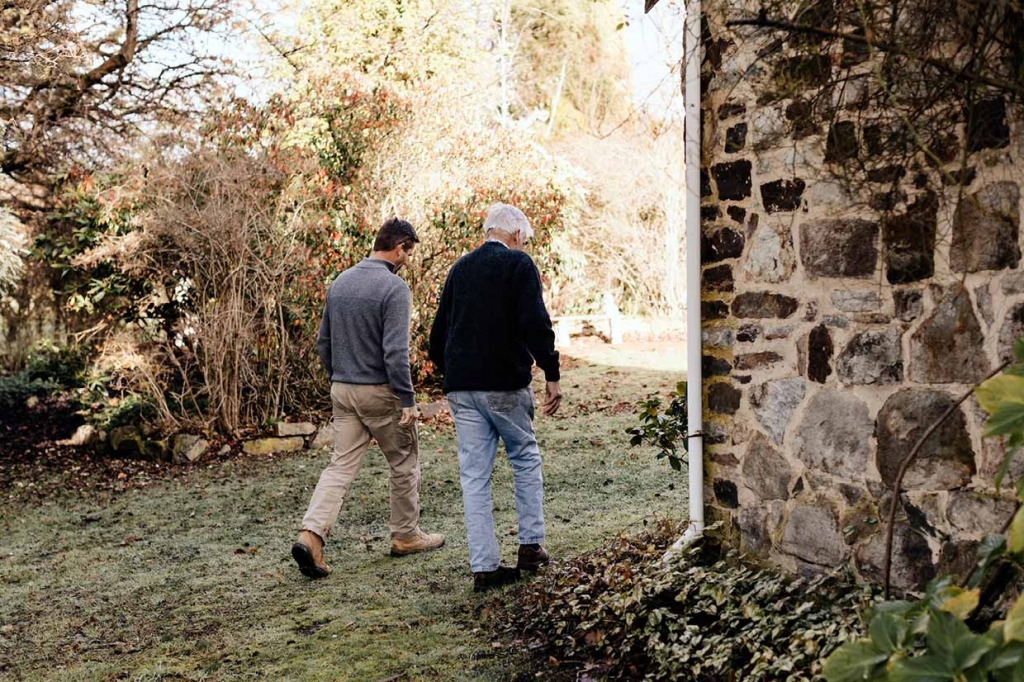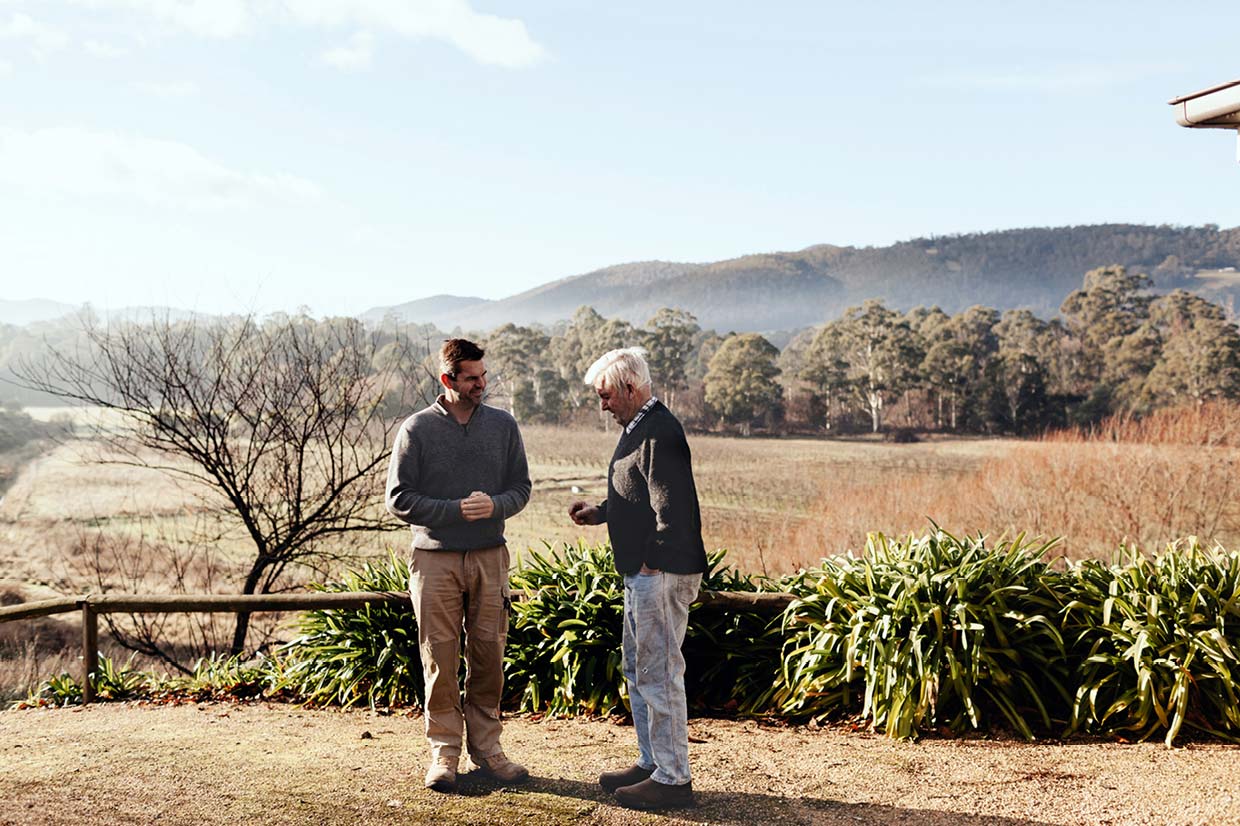
HOW THIS FAMILY BUSINESS SURVIVED THE ‘ALMOST EXTINCTION’ OF THEIR INDUSTRY
“When Dad joined the family apple business he thought he was going to be driving a gold Porsche, but the day after he started, the rug was pulled out from under the industry, alongside his dreams,” says Andrew Smith.
So how did Willie Smiths, the 4th generation Smith family orchard, survive the apple industry crisis to become a well-loved Australian brand?
I met Ian Smith and his son Andrew on a chilly Autumn day at the family homestead in the Huon Valley Tasmania. Not accustomed to the extreme Tasmania weather I was layered up with a sturdy seven layers, looking somewhat like the michelin man. The two men, at one with their land, greeted us with their single-layered checked shirts, sleeves rolled up, the signature of the Australian farmer.
“This land is not for the fragile,” says Ian. “You have to be resilient.”
“I agree. Beautiful but unforgiving,” I say shivering.
As I dig deep into the Willie Smith story I soon learn just how tough these two men have had to be to make it.
THE END OF AN ERA
“Back in the 60s it was the golden years. There were close to 2,000 apple farmers down in Tasmania. We were producing millions of cases of apples, exporting them all to the UK and Europe. 90% of the people in the valley at that time would have had some interaction with the apple industry. They were either making timber crates or packing apples. It was a beehive of activity. We were the largest apple growing region in the Southern Hemisphere. It was good to be an apple farmer in Tasmania,” explains Ian.
But, in 1972, the bottom fell out of the market. Competitors appeared in South Africa, South America and New Zealand with a cheaper cost of production. On top of that, Europe began to protect its market. A tariff was placed on all Tasmanian apples destined for Europe.
“It was such a devastating 12-24 months after the export market closed. Businesses were going bankrupt. The Tasmanian government came in and backed the industry to keep it going for a while. By 1981 we were down to 821 packing sheds registered for export and today there only 14 remain. The industry has been in decline for the last 30 years,” Andrew continues.
“These were all our friends,” chimes in Ian. “We had to watch as farms closed and even if families did manage to keep their farms they had to go to Hobart to get work.”
While some families went graciously, others went with a fight.
INNOVATING FOR THE FUTURE
Ian understood that those who were left needed to regroup, explore new markets and do it quickly. They started to look at South East Asia. There were already trade and shipping routes established into this market. So they changed their structure to suit the tastes of this new direction.
“Dad was one of the champions for this change. There were 10 to 12 families; the key leaders in the industry that were politically active. Technology had moved on and we embraced it. Controlled atmosphere storage changed the game,” says Andrew.
This new innovation meant that the life of the fruit could be extended. New technologies saw the fruit’s shelf-life lasting for up to 12 months. This gave flexibility in getting to markets. But there was still a problem; too many apples were being produced worldwide. Again the apple growers were under pressure as prices plummeted due to oversupply.
“I said to my son, I’ve had enough, I’m not sure I can keep doing this,” Ian reminisces.
But Andrew is quick to correct him. “Dad, that’s a lie, you were never going to give up,” he says.
ENTER THE NEXT GENERATION
Andrew tells me that when he finished school, he was pretty brash and uneducated. Ian had worked harder than anyone else to keep the industry alive and he was exhausted. He was gruff. Andrew entered the business at age 17 with the opinion that things needed to be done differently.
“Dad was fearful because of what he’d been through,” Andrew shares. “He wanted stability. Let’s just say, that with my gung-ho attitude, we did not get on. One too many arguments and I flew off down the road and went and worked for another orchard. The Calvert Brothers knew I had grown up around apples, and that I could drive a tractor so they offered me a position on the proviso that I stay for a minimum of two years. I was true to my word and stayed for two years and one day.”
From there, Andrew packed up and went off to Europe. Travelling, chasing the sailing scene (his other big love) and working when funds got low. Andrew actually made the Australian team for the Admirals Cup, a prestigious inter-country sailing regatta. Andrew and Ian would touch base on the phone every so often. And Ian told his son that if he ever wanted to come back to the farm he’d better learn what’s going on in Europe from a technical point of view.
Andrew took up that challenge and made the two years away his education. When he finally came back to the farm he had the confidence and the expertise to say, “Dad you don’t do it like that anymore.” The student became the teacher.
Over 10 years Andrew engineered the replanting of the trees across the whole farm. He introduced intensive farming. Willie Smiths transitioned from 800 trees per hectare to 3,000 trees per hectare. A new way of pruning was introduced and a new way of tree management, now the norm across the country.
Andrew and Ian have debated and argued for 20 years. Ian is not swayed easily, and Willie Smiths has gone through massive change thanks to Andrew.
“It’s only in the last six or seven years that our arguments have turned into fairly healthy debates,” says Andrew. “Although I have always been the instigator of change, Dad’s the one that has made it happen.”
Ian shares, “I’m habitual. So I have to get along with my son otherwise he’ll kick me out. (laughing) No, I do enjoy it. I’ll probably bring some baggage with me but I do get there in the end.”
Ian does find it hard to no longer call the shots now that Andrew is running the farm. He can make suggestions but he can’t make the final call. But he appreciates Andrew’s strengths and knows he’s the right man for the job.
“Andrew is a good thinker. And he has a much softer side than I do,” Ian mentions reflectively.
Andrew shares his thoughts on his Dad. “He’s a hard worker, he’s a value based guy. He’s very honest and very loyal. He won’t stab you in the back. He supported me. There’s been some tension and there’s been some conflict, but at the end of the day he’s backed me with everything I have wanted to do. I would have liked to create change quicker. But that might have been a mistake. I can’t forget that Ian gave me the foundation and the third generation of wealth to be able to do everything that I’m able to do right now. He didn’t give me any debt. If Dad gave me the cheque book at 21 there’s no doubt, we’d be broke. Dad might have been abrasive but I must have been a yappy dog, having a go all the time.”
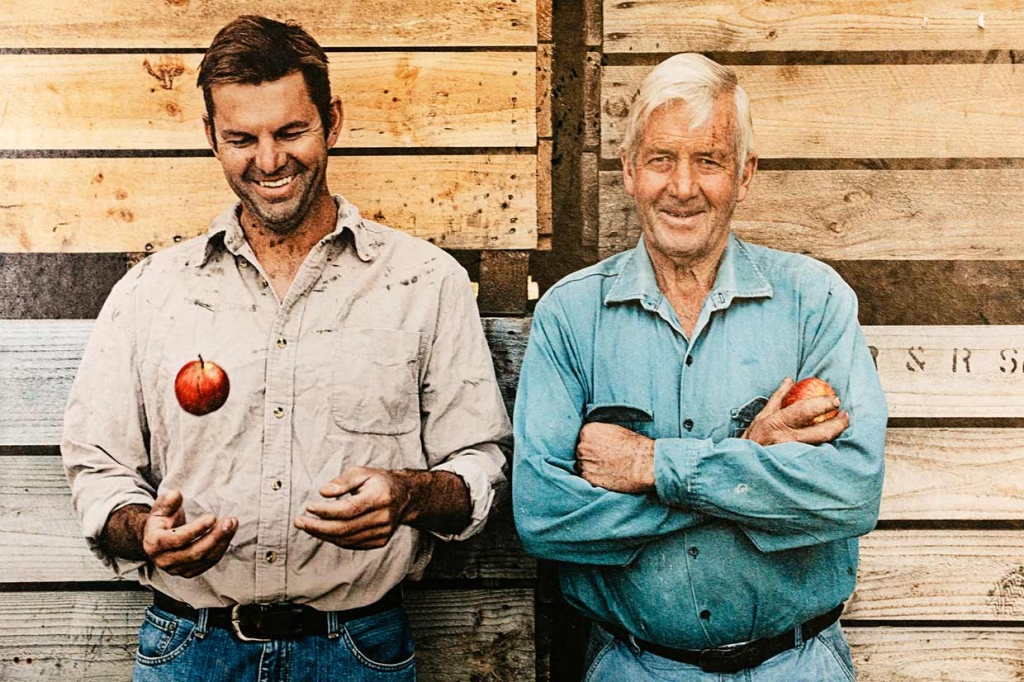
A SHIFT TO ORGANIC
Every time there is a shift in the industry, some make the change and others miss out. Andrew realised that they needed to do something drastic to win in a declining industry. They had to stand out from the conventional farmers. They needed to tell a different story. So again, Andrew drove the wave of change and championed the introduction of organic farming into Willie Smiths.
Andrew explains, “It’s a four-year process to become certified organic. I was arguing with Ian about whether we could do it. He said if it stacks up economically we will do it. He gave me a block down near the stone house and we went for it. That was when the ball really started to roll for us.”
As they had never sold organic fruit before, there needed to be a shift in the paradigm. Ian decided that he had better go back into the orchard to look after the fruit and Andrew had better get out there and figure out how to sell organic apples. Andrew began to create the market.
He started with the traditional routes for wholesale, but as the volumes grew he decided he wanted to bypass the intermediaries as there were too many hands in the till. He hatched a plan to become a direct supplier to Woolworths. They already had a contract with an organic supermarket called Macro Wholefoods, but it was time to get the big player on board.
Andrew started writing to Woolworths suggesting that they buy Willie Smiths apples and push organic. No response. Woolworths then bought Macro and all of a sudden Willie Smiths became a supplier to Woolworths. Again Andrew tried to suggest they roll out organic apples across the supermarket. The response…‘you are not a national vendor yet, you need to prove yourself’. Woolworths gave them one state of Australia for 12 months to get the job done.
“So in 2005 Willie Smiths was granted the state of Tasmania,” says Andrew. “We sold about three pallets of fruit over 12 months, which equated to $5,000. It was nothing for the entire year. But because they previously weren’t selling organic, we showed a 13% growth. Woolworths are wowed by numbers. They didn’t look at the bottom line, they didn’t even look at the dollar value.”
Willie Smiths was in. They were granted their national vendor number and this was their massive catalyst for change. It accelerated and strengthened the business.
Andrew expresses an appreciation for supermarkets, “It’s very logical what they want. They want to make margin and we want to sell product. And if you work on that level and you take all the personalities out of it, it works beautifully. I think modern business is about truly building partnerships. Going in with good intent and doing what you say you are going to do with the desire to build a relationship.”
Andrew continues to work alongside Woolworths to build his brand. Woolworths understands the importance of the provenance story to the consumer, so Willie Smith will hopefully have a brand presence within the supermarket, and no longer be white labelled.
BUILDING A BRAND
Willie Smiths is a success story. And the success has not just been about growing apples. It’s about provenance and people knowing where their food comes from. It’s about selling a story, having a relationship with the customer base, food safety, partnerships and doing something that other producers in other regions might not be able to do.
Andrew shares, “You need a holistic approach to building the brand. I’ve had friends that have decided to go organic because they think there is money in it and within three years they’re broke. You need to look at the external and the internal. It’s also about how you treat people, it’s about how you treat your staff and rally them to become your biggest supporters.”
THE MINDSET OF AN INNOVATOR
I want to understand the key to the mindset of those who challenge the status quo and makes serious change. What makes them tick?
“I don’t want to do what everyone else is doing. If you’re going that way, I want to do the opposite,” explains Andrew. “Humans can adopt a sheep mentality but sometimes you need to break the mould and do something different. That’s the way to seriously achieve.”
“Businesses evolve. And if you just look over the back fence you will evolve at that rate,” shares Ian.
Both Ian and Andrew express the idea of control as a driving factor for their approach to the business. There are so many variables in a farmer’s life. You can’t control the markets, you can’t control the exchange rate, you can’t control the weather. They needed to do something to create some control. They felt like if they changed the rules they could create that control. This is what drove them to innovate.
THE FUTURE
The market is fussy and any fruit with a blemish wasn’t going to sell. Andrew wanted to reduce waste and create another revenue stream. People were talking about cider. So cider it was. Through his networks, he established a relationship with Sydney-based Sam Reid who had been working for alcohol brand Diageo. Sam had dreams of building a cider company. So, after spending a weekend together in Tassie, they formed a partnership. Although the Willie Smith cider business is relatively new, Sam has big plans. He is ambitious and relentless in his determination to build this company.
Interestingly it’s Andrew who has his foot on the brake.
“We’ve got conflicting dreams about the cider,” says Andrew. “My initial goal was to build a sustainable, profitable, medium-sized business. I didn’t realise that my cider partner wanted to take over the world. We’ve got a really interesting, powerful combination. We battle. Sam’s vision is dizzying but at the same time exciting. I just slow everything down.”
So the tables have turned, as Willie Smith enters its next era Andrew appreciates his father’s voice.
Andrew Smith, a chip off the old block.
OTHER STORIES

BYRON BAY BY CANDLELIGHT—THE LOVING FAMILY BEHIND BYRON BAY CANDLES
Infusing love and relaxation through the flicker of a candle-light, that’s what this eco-conscious family has been doing since 2001. With 100% natural ingredients and a focus on minimising their ecological footprint—we’re sold…
read more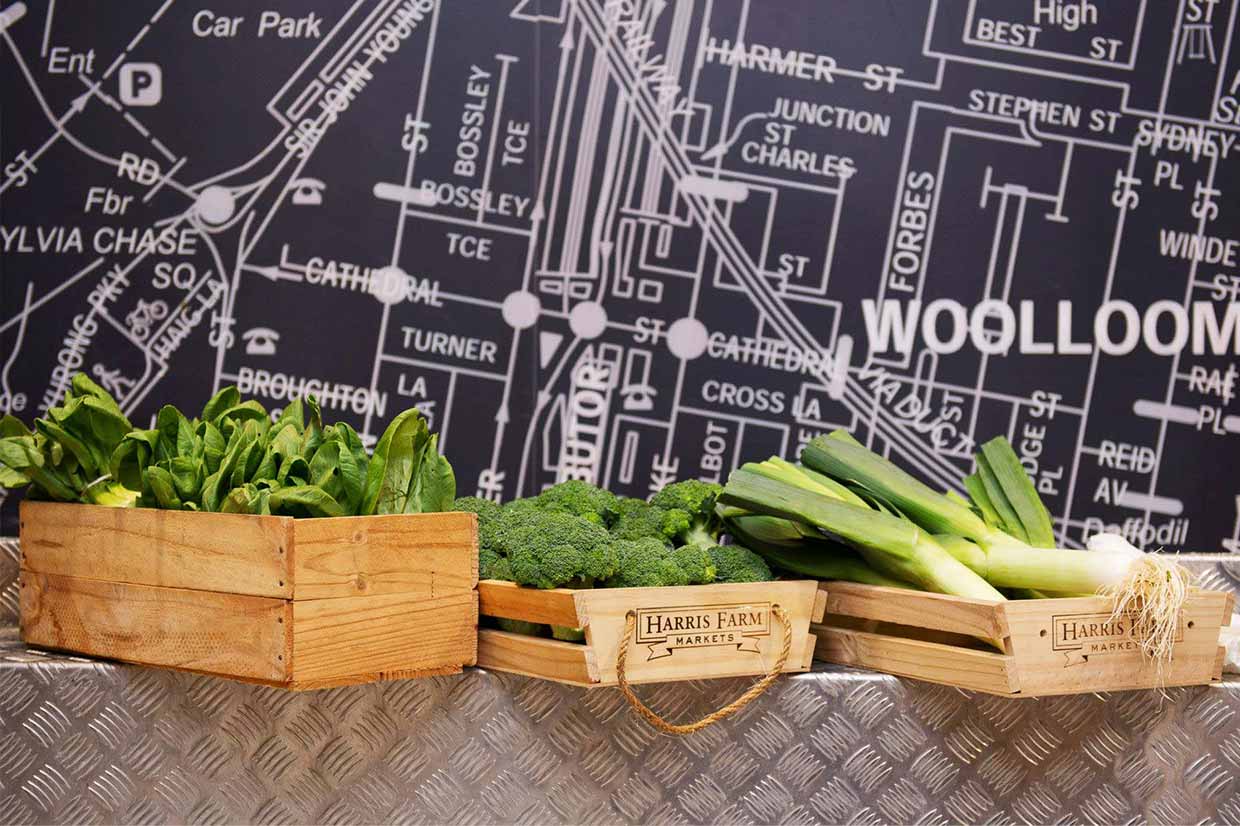
THREE COMPETITIVE BROTHERS – A RACE TO RUN HARRIS FARM
When three brothers figured out how to work as a team and not as competitors, Harris Farm flourished. Learn more from Tristan Harris, co-CEO of the family business.
read more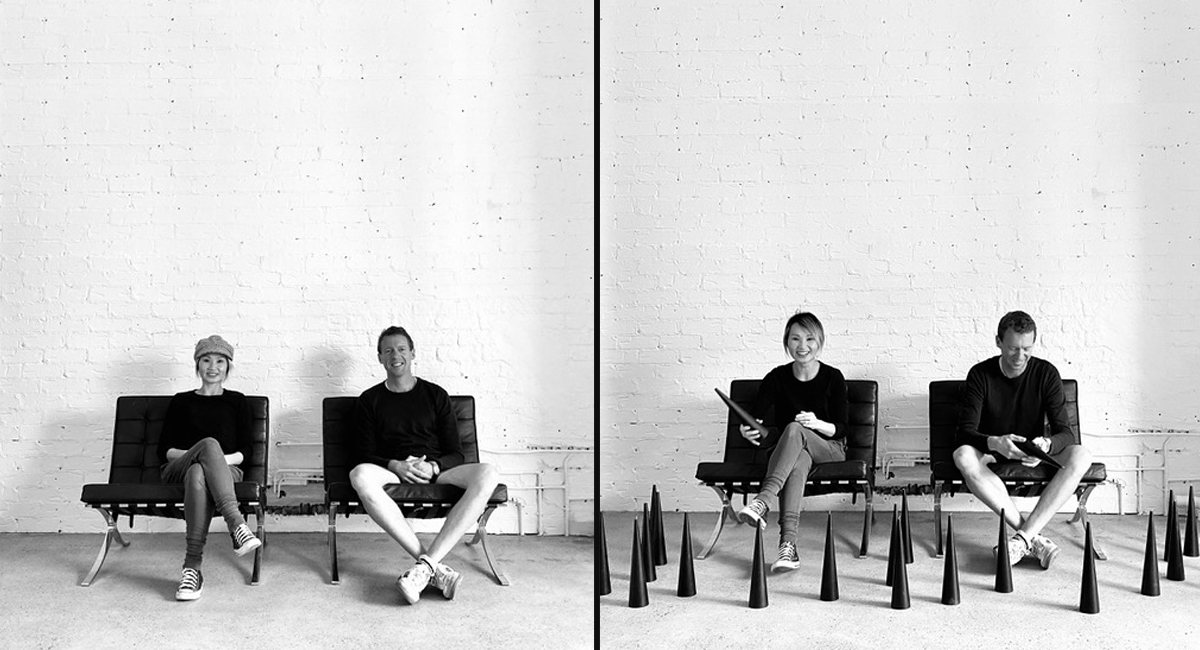
A SLOW BURN ROMANCE BIRTHS A FAST GROWING CANDLE COMPANY
When Winnie and Rik finally started dating, after a year of ‘friendship zone’, they didn’t realise that their coming together was also the birth of one of Australia’s most respected artisans brands.
read more
